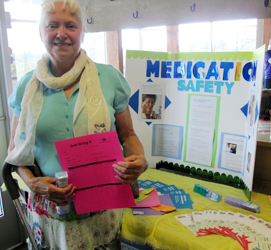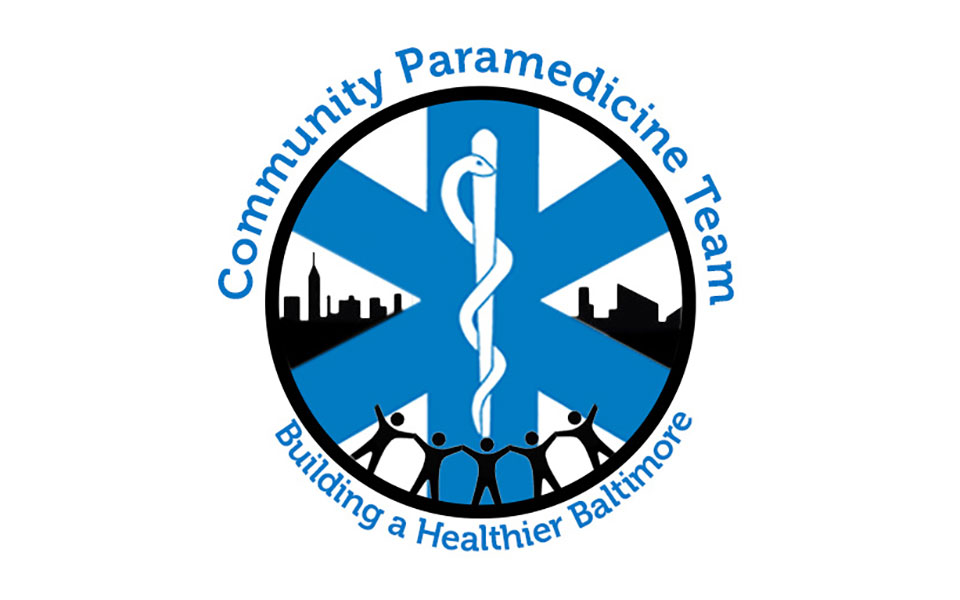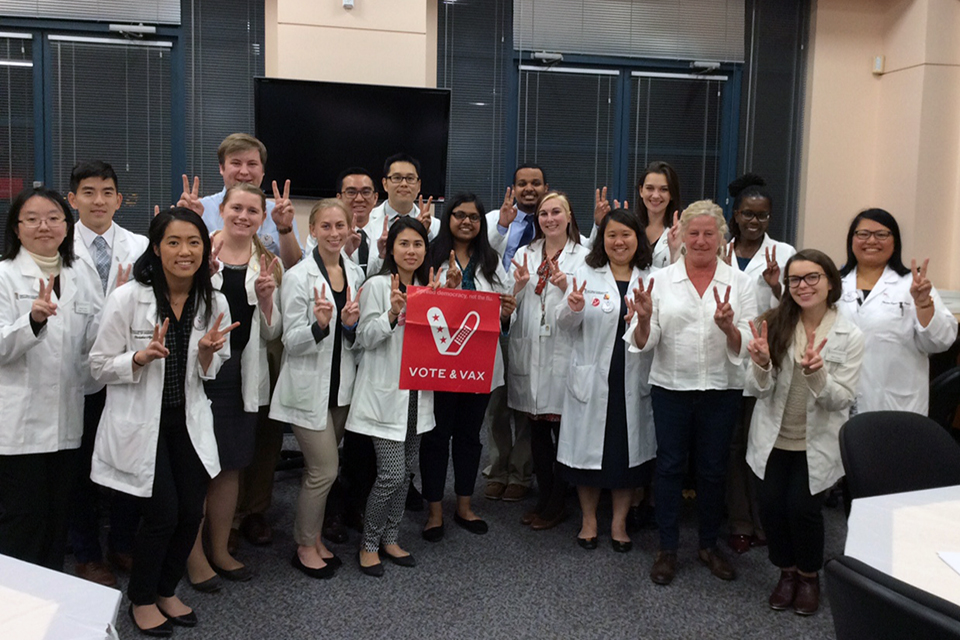SOP Student Project Highlights Pharmacy Needs in Rural Maryland
Medication safety project designed by fourth-year student pharmacist exposes need for pharmacy services in rural Maryland.

By Malissa Carroll
September 26, 2012
According to the Centers for Disease Control and Prevention, one in every three adults age 65 and older will experience a fall each year. Falls can cause moderate to severe injuries, including hip fractures and head traumas, and can even increase the risk of early death. However, what many older adults do not know is that the medications they take may increase their risk of falling.
In July 2012, Birdie Nguyen, a fourth-year student pharmacist at the University of Maryland School of Pharmacy and member of the Association for Prevention Teaching and Research’s Paul Ambrose Scholars Program, launched a project to promote awareness about how certain medications can contribute to falls in older adults.
“Through my participation in a rural health workshop sponsored by the Western Maryland Area Health Education Center, I became interested in health care equity and access, particularly in relation to pharmacy services,” says Nguyen. “After learning about the fall prevention initiatives in Cumberland, I realized that my medication safety project had a place in rural Maryland. The local health systems had started a program called ‘Just Bring It!’ which encouraged patients to bring a current list of their medications, including prescription, over-the-counter, and herbals, to their doctor or pharmacist for review; they hoped to reduce the number of falls caused by drugs.”
Concentrating her efforts in Allegany County and Garrett County – the areas that consistently report the highest number of falls among older adults in the state of Maryland — Nguyen used the “Just Bring It!” format to standardize medication lists. In addition to giving 30-minute presentations about medication safety at select senior centers in the area, Nguyen also set up a table at various health fairs hosted at senior centers, churches, and community health clinics at which she provided older adults with information to help educate them about the risk of falls associated with certain medications.
However, as she worked to complete her project, Nguyen became aware of a larger need for pharmacy services in western Maryland. Lack of access to pharmacy services, fewer independent pharmacies, and difficulties associated with recruiting new pharmacists to the area have placed older adults living in western Maryland at a significant disadvantage.
“Traditionally, rural areas have less access to health care services, including pharmacy services. Since rural populations, on average, tend to be older and experience more chronic health conditions than urban populations, it’s especially important to maintain rural pharmacy services,” says Nguyen. “A person shouldn’t be disadvantaged because of where he or she lives. I chose to conduct my community-based health education project in rural Maryland because that area has the greatest need for these types of services.”
Nguyen recalls one instance in which she was participating in outreach at a western Maryland health clinic when she encountered an older couple who asked her assistance with resolving a debate in which they were engaged. The couple wanted to know if there were drug interactions between their prescription medications and herbal supplements, and whether separating the doses could avoid any potential problems. Although it was a light-hearted moment between husband and wife, Nguyen took the opportunity to educate the couple about the importance of speaking to their pharmacist to ensure they were taking their medicines safely and effectively.
“While implementing this project, I was reminded that pharmacy has many opportunities to influence public health,” says Nguyen. “Medication safety is an important topic, but I don’t think it gets the exposure it deserves in some settings. It’s important that we as a profession continue to bring awareness of important pharmacy topics to the community.”
Francoise Pradel, PhD, associate professor in the Department of Pharmaceutical Health Services Research, and Nicole Brandt, PharmD, BCPP, CGP, FASCP, associate professor in the Department of Pharmacy Practice and Science, mentored Nguyen throughout her project.
“Our role in this project was truly minor; Birdie did all of the work,” says Brandt. “She is an extremely motivated and passionate person, as well as a very hard worker. I look forward to hearing more about her work and its impact on rural communities.”
Nguyen completed her project before the beginning of the fall semester, but says that the time she spent in western Maryland provided a great learning experience that she will continue to carry with her as she pursues her pharmacy career. She plans to return to western Maryland after recruiting a new group of student pharmacists to participate in health fairs and continue to help educate older adults about medication safety.



